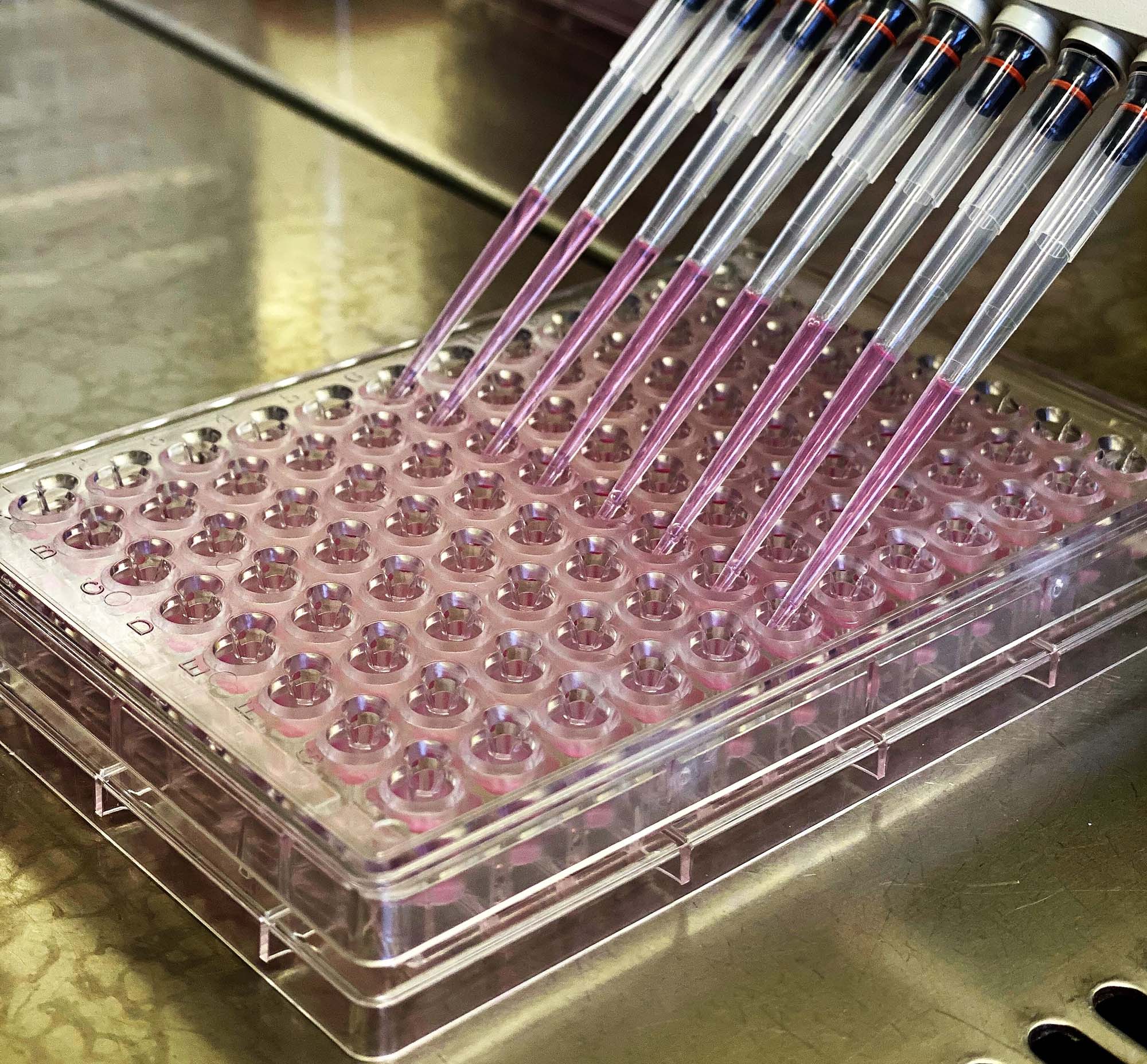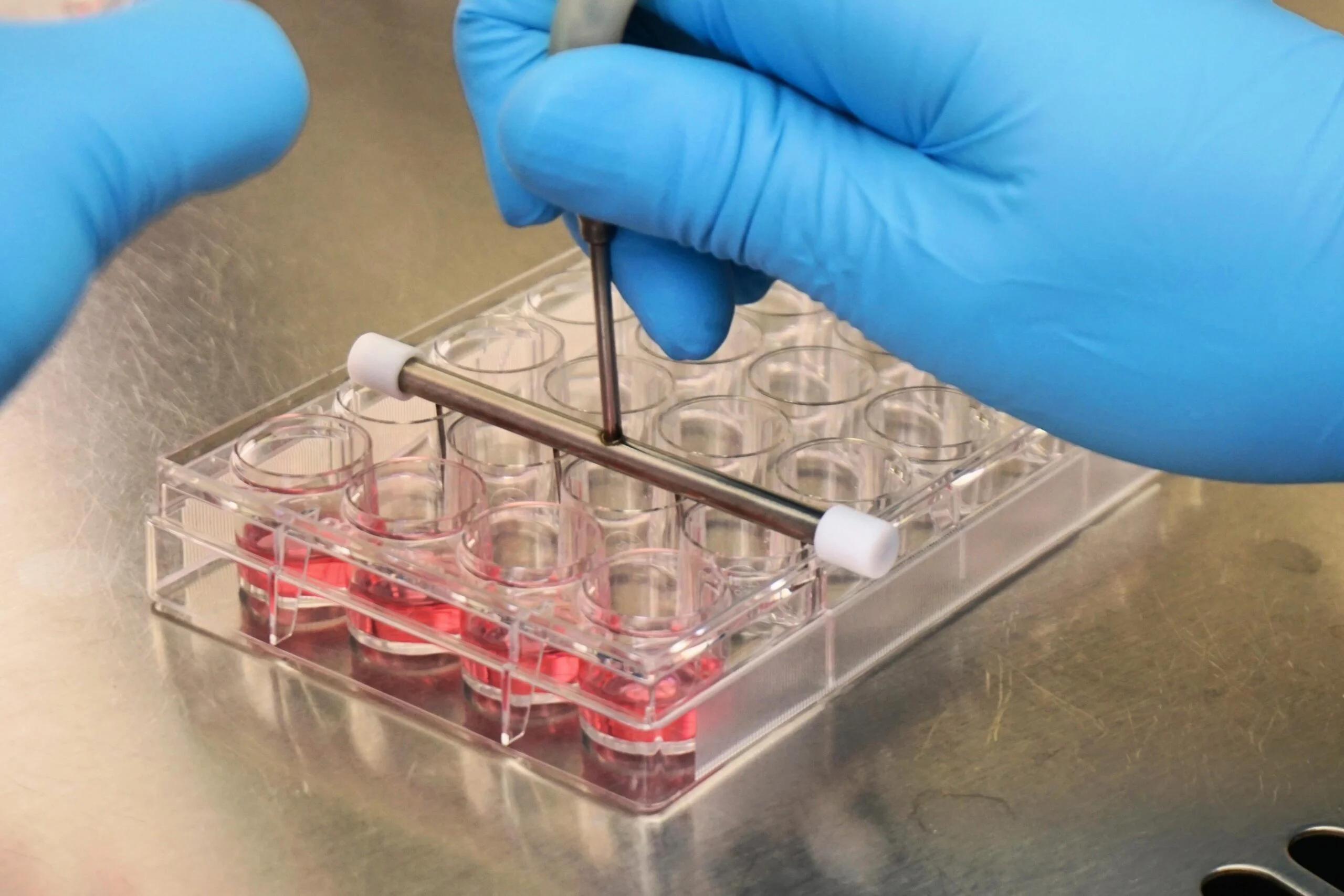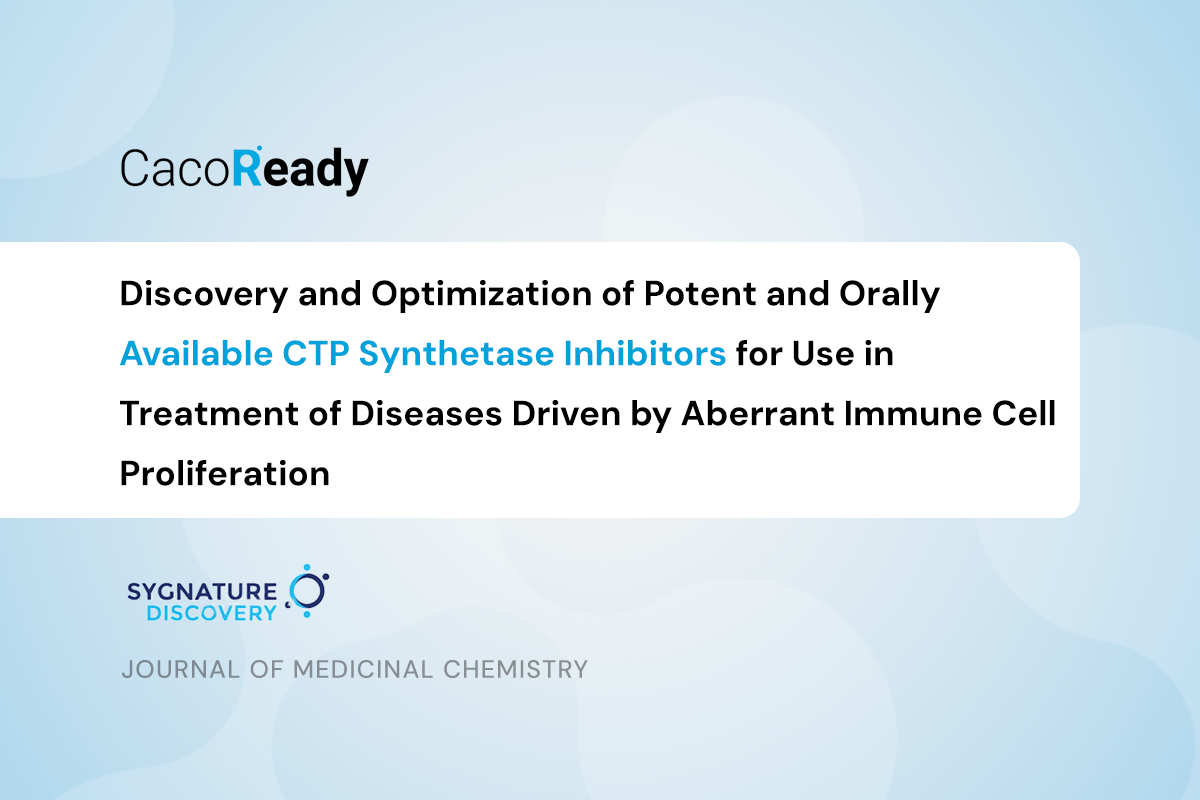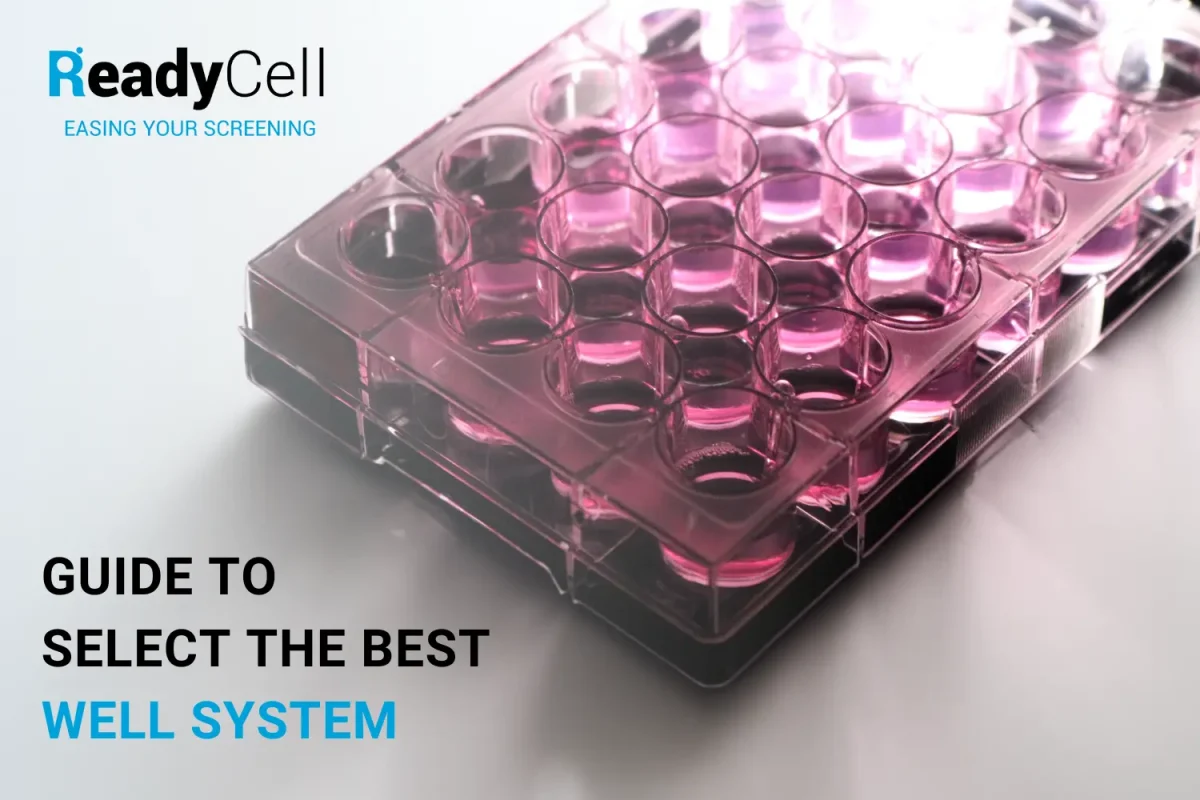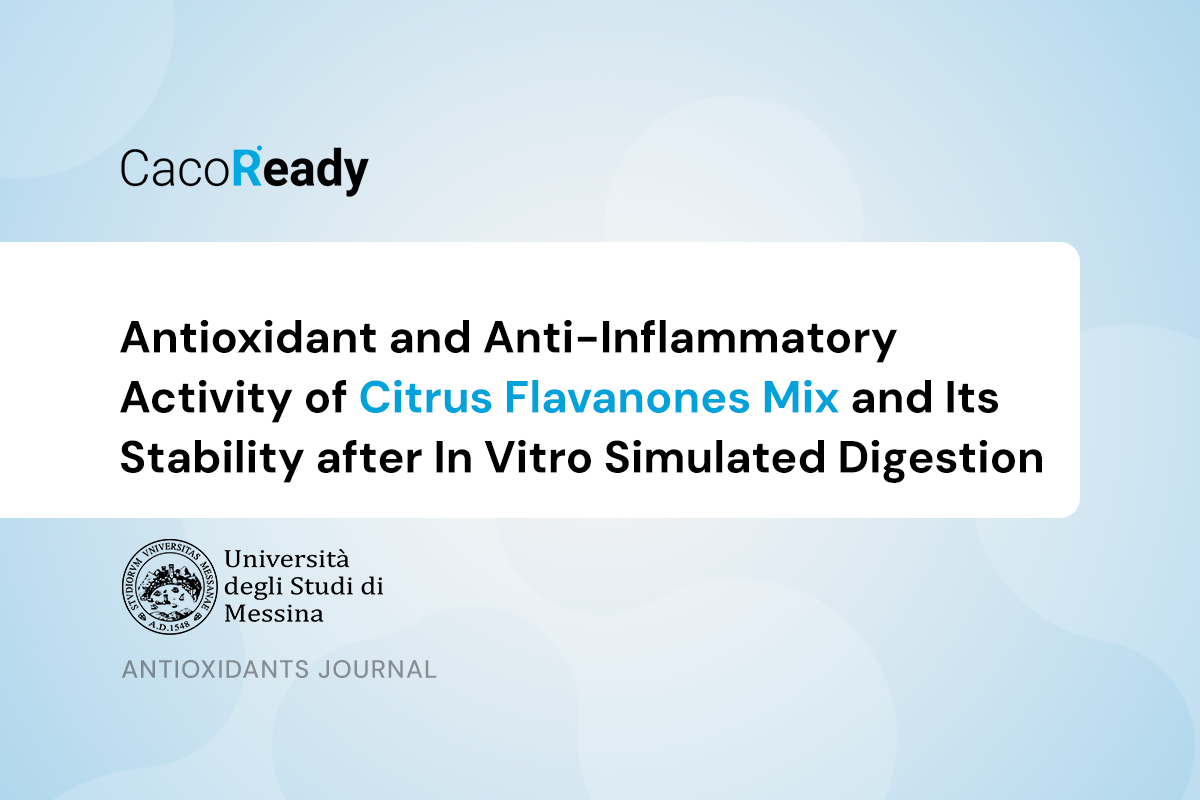Chronic inflammation of the gastrointestinal tract occurs due to genetic, hereditary, and environmental factors. This process is driven by a complex network of inflammatory mediators, primarily cytokines, released by intestinal and immune-related cells.
In vitro cell-based studies are widely used in the early stages of anti-inflammatory drug discovery, offering a controlled and efficient approach to study and test active molecules with anti-inflammatory properties, without the complexity of in vivo models.
However, these studies typically rely on time-consuming methods, such as ELISA, to quantify the effects of compounds on the expression and release of cytokines like IL-8. To speed up this process, MedTech Barcelona offers an alternative: a rapid detection approach based on the correlation between gut inflammation and intestinal barrier dysfunction.
Our comprehensive CacoGoblet Anti-inflammatory Testing Protocol provides clear step-by-step instructions, a comparison between the two methods, and expert insights to ensure reliable and reproducible results.
Interested in learning more? Request the full protocol today!
Assessing compounds’ anti-inflammatory capabilities with CacoGoblet
CacoGoblet is a ready-to-use cell-based model established with differentiated human colorectal carcinoma cells (Caco-2 and HT29 cells) that mimic the morphological and functional properties of the intestinal barrier in vivo. The model is preplated and differentiated during 21 days on transwell allowing the formation of a confluent monolayer.
This kit can be delivered in 24-well/plate with shipping medium, a gel-like cell culture medium established by MedTech Barcelona, which ensures the viability of the co-culture and enables the transport of cells at room temperature worldwide in a ready-to-use format.
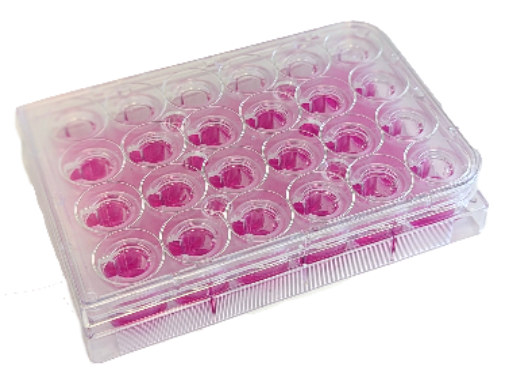
Which are the key steps to perform a successful in vitro anti-inflammatory testing assay with CacoGoblet?
Assessment of cell monolayer integrity
To verify that the cell monolayer remains intact after shipping, it is important to assess Transepithelial Electrical Resistance (TEER) before starting the protocol.
| Measurement | CacoGoblet® 24w |
|---|---|
| TEER | > 70 Ω·cm² |
Test compounds’ anti-inflammatory properties protocol
CacoGoblet enables the evaluation of anti-inflammatory effects of reference and unknown compounds within the gastrointestinal tract.
The protocol begins by inducing an inflammatory response in the model. Once inflammation is triggered, test compounds are exposed to assess their anti-inflammatory potential over a period of up to 72 hours, offering valuable insights into their effectiveness.
We suggest testing each compound in triplicate, including the appropriate controls and an anti-inflammatory reference compound to ensure reliable and robust data.

Wells in light purple represent the control conditions for the assay with untreated cells, cytokine-treated cells, and cytokine-treated cells with baicalein as a reference anti-inflammatory compound.
As a reference compound, we recommend using baicalein, a flavonoid derived from the roots of Scutellaria baicalensis. Known for its antioxidant and anti-inflammatory properties, baicalein has been extensively studied for its ability to modulate inflammatory responses in various models. While its anti-inflammatory effects are considered modest compared to other compounds, baicalein serves as a useful benchmark in our assay to evaluate the effectiveness of new test compounds.
Evaluation of the Compounds’ Anti-inflammatory capabilities
Anti-inflammatory activity is performed using TEER (Transepithelial Electrical Resistance) measurements and Lucifer Yellow paracellular permeability assay. These parameters are crucial for evaluating the impact of the test compounds on membrane function and their anti-inflammatory potential.
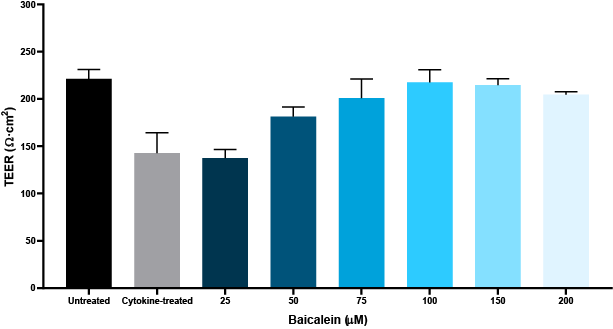
Using both parameters, you can gather high-quality data in a straightforward and cost-effective manner, offering an advantage over traditional methods such as inflammatory cytokine quantification through ELISA.
To dive deeper into the data and the comparison with ELISA in the CacoGoblet model, check out our detailed technical information.
Want to know more about MedTech Barcelona ready-to-use assays?
At MedTech Barcelona, we are dedicated to advancing in vitro models for anti-inflammatory research by continuously optimizing our models. Our goal is to provide reliable and reproducible solutions that accelerate drug discovery and screening processes.
To learn more about the cell models used in in vitro testing, or if you require more specific information about our kits, feel free to contact us through our form or by emailing reagents@medtechbcn.com.



